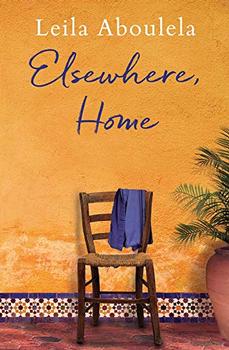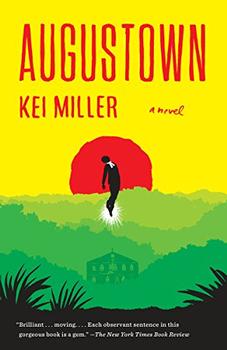Summary | Excerpt | Reviews | Beyond the book | Read-Alikes | Genres & Themes | Author Bio

And Other Stories
by Maxine Beneba ClarkeThe stories in Maxine Beneba Clarke's debut collection, Foreign Soil, are far-ranging in time, place, and voice. They are stylistically bold, structurally innovative and brave in subject, confronting war, child soldiers, domestic abuse, gender identity, and political violence. Clarke writes with the lyricism of a poet and the starkness of a writer of Witness literature (the process of bringing to the page an event both catastrophic and far-reaching in nature and to let the words serve as as a representation of truth. The author may be a direct witness, or an "imagined" witness. See Beyond the Book). Clarke's characters come from Australia, Sudan, Sri Lanka, the United Kingdom, Jamaica, China, and the United States, and each one feels fully fleshed, shaped by his or her native culture. They exist in the margins between belonging and "otherness," and Clarke catches them in moments of crises that bring our common humanity to the forefront.
Either literally or figuratively, the characters that populate these tales are on foreign soil, and to be on foreign soil is to be marginalized. In the title story, the protagonist is a white hairdresser from the suburbs of Sydney. "All her life, Ange had felt she didn't belong to the drudgery around her, to her ordinary world." Looking for, "a chance at something remarkable," she follows her Ugandan physician boyfriend to Kampala, where she is truly on foreign soil, with devastating consequences. In "Shu Yi", Ava, the young black narrator, is from, "a typical everyone-knows-everyone-else's-business-and-can-I-borrow-a-cup-of-milk-for-the-kids-breakfast-please suburban blond-brick Australia," not far removed from the neighborhood where Clarke herself grew up. Yet, also like the author, she is on foreign soil because of the color of her skin. When Shu Yi, an awkward immigrant from China enters Ava's school, Ava is confronted with the choice to either stick up for this girl with whom she can identify or to make life easier on herself by taking part in bullying that, before Shu Yi's arrival, was often directed against her.
In "The Stilt Fishermen of Kathaluwa," Asanka, a Tamil child soldier, is left with neither country nor soil to call home. He flees the horrific civil war of his native Sri Lanka on a dilapidated fishing vessel. After a harrowing journey, he is taken to the infamous detention center in Villawood, a suburb of Sydney, where he is held in indefinite detention, stripping him of hope for a future. When the fellow inmate who took him under his wing dies, he is left without meaningful human contact: "Ever since then, Asanka's been counting. Trying to fill the day with things. Filling a day with things has never been more difficult. In Gonagala, just before he got away, he cut up three people in the time he now has to make stretch till breakfast."
The power of language, and – conversely – the impotence experienced when robbed of language are central themes in Foreign Soil. On one hand, many of the characters are voiceless and therefore powerless. Ange finds herself in Uganda where her boyfriend subjugates her by speaking only Luganda, a language she does not understand. "As a result, he'd rendered her mute in almost every encounter: with shopkeepers, colleagues, the help." In the eponymous story "Harlem Jones," which tackles the 2011 killing of Mark Duggan and the resultant Tottenham riots in North London, Harlem is rendered politically and economically voiceless by what Clarke terms the "lateral violence" of marginalization by white society. He feels the only voice left to him is that of violence: "He'd lost it at the job-shop broad with her fancy clothes, the posh way she talked. Fuckin' raged out on her, and once he got started, he couldn't do nothin' to stop himself." Asanka, the child soldier, is robbed of voice at the detention center: "It is like I have no tongue." In the end, he silences himself in a way that left me without breath.
On the other hand, two of the stories are told entirely in dialect, which gives not only recognition but also power to the characters and the cultures from which they come. "Big Islan," the story of a dockworker from Kingston, Jamaica, begins, "Nathanial Robinson lean out ovah de water, shake im head an look-look down pas im grubby dungarees an im heavy leather work boot, an inte de water below." The patois at first can seem jolting, but giving in to the lyricism and joy of the language, it soon becomes an integral part of Nathanial's story: the lexicon of place and worldview, his cultural voice.
Another aspect of language as power involves Nathanial's secret: he is illiterate. He seems content with his lack of knowledge, content with his physical and societal place, until Clarisse, his ambitious wife, pressures him to learn to read, one letter at a time: "A is fe ackee… B is fe banana… J fe Jamaica." The more he progresses, the more restless he becomes, and this is reflected in his lessons:
E is fe effort.
A is fe audacity.
I is fe impossible…
E is fe Inglan. [England]
O is fe opportunity.
When he finally deciphers a newspaper story, he gains a sense of power, and his mind takes a turn that cannot be reversed.
Where dialect in "Big Islan" works seamlessly, it seemed problematic in "Gaps in the Hickory," a story about a family in rural Mississippi. It is told in multiple voices, and the relentlessness of dialect at times overwhelms all else. Although the characters are beautifully rendered, the language paints them with a sameness that is difficult to ignore. There are also minor misuses of dialect that will take anyone who has lived in the south out of the story. For example, "y'all" is used repeatedly in the singular, and although there is academic debate, common usage is restricted to the plural. Second is the use of "pickney" to refer to a white baby. According to the Oxford Living Dictionary, "pickney [a contraction of pickaninny] is commonly used to mean 'child' in Caribbean English," but in the south, it refers to a black child and is racially offensive when used by whites. Language aside, this is a tenderly crafted story of love, identity, appropriation, and the consequences of cultural violence, entirely worthy of a place in the collection.
The stories in Foreign Soil are not about epiphany and grand plot twists; they are about the subtle shifts that occur with the intake of breath or the turn of the head, bringing choice to the forefront. Like Markie, the narrator's son in "The Sukiyaki Book Club," the semi-autographical story that concludes the collection, each character is, "a child of changes, gaps and relocations, of rumblings and shakings, of constant sound and frequent movement." Although the decision to change course is sometimes taken, sometimes not, the final words of each story feel more like a beginning than an ending, a wide-open space that opens before the reader.
![]() This review was originally published in The BookBrowse Review in March 2017, and has been updated for the
October 2017 edition.
Click here to go to this issue.
This review was originally published in The BookBrowse Review in March 2017, and has been updated for the
October 2017 edition.
Click here to go to this issue.

If you liked Foreign Soil, try these:

by Leila Aboulela
Published 2019
A rich tableau of life as an immigrant abroad, and the challenges of navigating assimilation and difference. Elsewhere, Home draws us ineluctably into the lives of her characters as they forge new identities and reshape old ones.

by Kei Miller
Published 2018
In the wake of Marlon James's Man Booker Prize–winning A Brief History of Seven Killings, Augustown - set in the backlands of Jamaica - is a magical and haunting novel of one woman's struggle to rise above the brutal vicissitudes of history, race, class, collective memory, violence, and myth.
Your guide toexceptional books
BookBrowse seeks out and recommends the best in contemporary fiction and nonfiction—books that not only engage and entertain but also deepen our understanding of ourselves and the world around us.